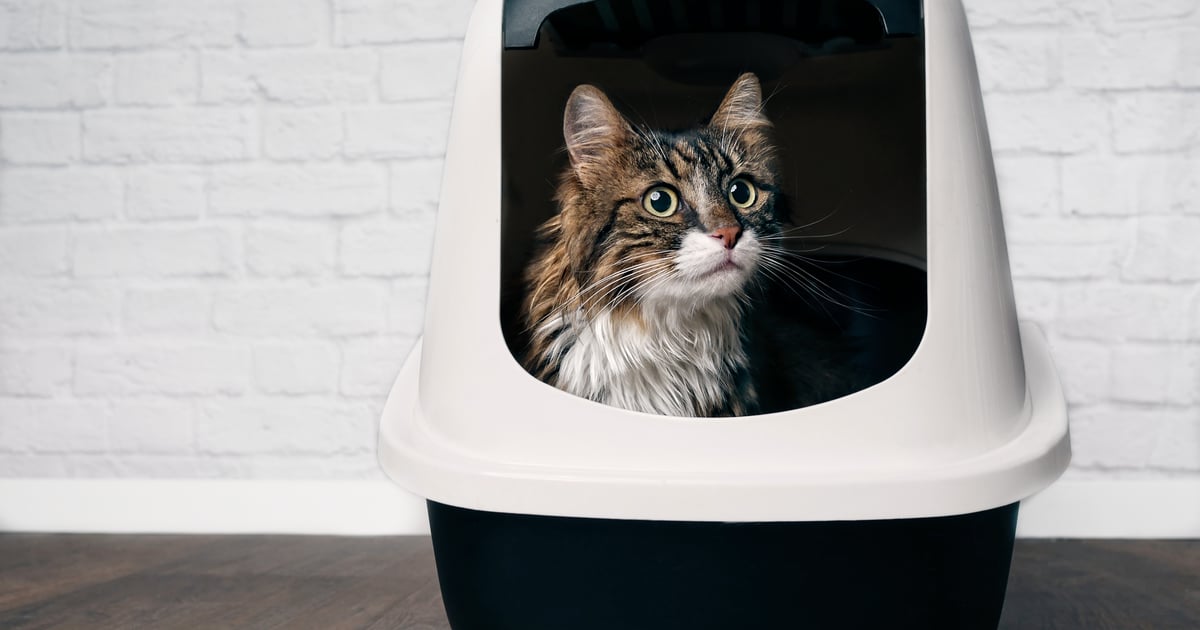It’s not uncommon for a cat with longer fur to get a little bit of litter-covered poop stuck to their hind fur, but when my cat with short hair started to serve whiffs of eau de number two, I was confused. There wasn’t litter stuck to her fur, but her behind definitely looked akin to a newly potty trained toddler who can’t yet wipe well enough. Because she was more than 3 years old at this point, I felt like something was wrong when about once every four days I’d noticed she “hadn’t wiped well;” and since she has short fur I was nervous she was getting poop particles all over the surfaces of our home.
Since cats are insanely clean animals, I started to ask myself questions about Grey’s behavior: could there be a specific reason she wasn’t cleaning herself correctly? Was she going through a period of laziness? Maybe she woke up one day and chose long term spite? Was my wiping her — which yes, I did every time, much to my displeasure — going to cause her to become reliant on my assistance?
This behavior went on for about two months before it stopped (hopefully for good), but I decided to chat with Dr. Zay Satchu, cofounder and Chief Veterinary Officer of Bond Vet, to see if there was a possible explanation for this sudden increase in Grey’s post-bathroom issues in case they were to arise again. (Which, Grey, if you’re reading this, let’s not?)
Are Cats Supposed to Clean Themselves After Going to the Bathroom?
“Cats are naturally clean critters, so they are inclined to clean up after using the litter box,” Dr. Zay told POPSUGAR. “Typically though, they have little to no residue from their bathroom habits. If you do start to notice feces on kitty’s bottom, you may want to investigate to see if they are experiencing looser than normal stools.”
In Grey’s case, we hadn’t noticed anything unusual in the box, but due to the clumping nature of litter, looking back we can’t be totally sure as we weren’t looking for anything specific. However, Dr. Zay shared that there are a few other reasons that Grey’s uncleanliness could have been occuring (spoiler: none of them seem to fit for Grey, and it’s still a mystery as of now why this went on a couple times a week for about eight weeks).
“Overweight cats may have a difficult time reaching around to clean themselves, and older cats may have some discomfort from arthritis trying to maneuver the correct position,” Dr. Zay said. “Occasionally, mouth or tooth pain can prevent cats from wanting to groom as it may cause some discomfort to do so. Lastly, stress can cause behavioral changes that lead to less grooming. If there has been added stress or changes in the household, kitty may not be feeling herself. If your cat was a natural groomer and has suddenly stopped, it is a good idea to reach out to your vet.”
Dr. Zay explained that another factor could have to do with the actual length of a cat’s legs and how much space there is between their bum and the litter — if your cat is experiencing either poop or litter (or both!) residue no matter their fur length, consider how high the litter may be in the box and how tall your cat is.
My most burning question for Dr. Zay was the aforementioned, is my wiping her going to cause her to become reliant on my support? Luckily, the short answer was no. “Lending a helping hand is fine. Your kitty will not become dependent on your assistance,” she said, adding, “But if this becomes a recurring issue you should investigate why she is soiling herself.”
Investigate we did, and we ended up coming short, but we’re now regularly on the lookout for any odd litter box cues so we can be more informed if this ever happens again. For now, I’m chalking this prolonged incident up to spite — Grey doesn’t love being picked up and I lost many a shirt to the garbage after picking her up with an unclean bum. Lesson *mostly* learned.

